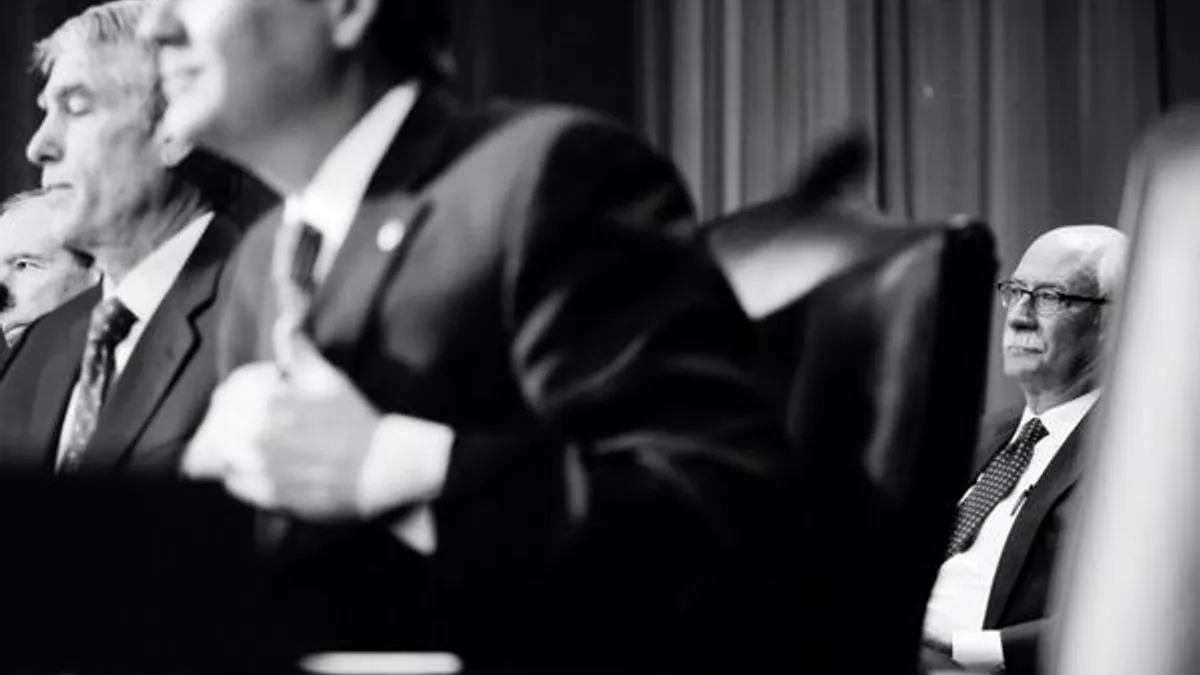
Now that President Obama’s nominee to fill the vacancy on the Federal Energy Regulatory Commission (FERC) has withdrawn his name from consideration, don’t expect the White House to be in any rush to send up another nominee.
WHY BINZ WITHDREW
Ron Binz, former chairman of the Colorado Public Utilities Commission, withdrew on Oct. 1 after it was clear he did not have the votes for his nomination to clear the Senate Energy and Natural Resources Committee. A Democrat, Obama had tapped Binz to not just sit on the commission but to also serve as chairman. Binz’s perceived sin was being too much of a booster for renewable energy while hostile to coal and even natural gas. A ferocious campaign by industry groups and editorials in The Wall Street Journal were simply too much to overcome.
Ironically, FERC has nothing to do with setting federal policy on electricity generation. Its charge is chiefly to regulate interstate transmission of electricity, natural gas and oil, license hydroelectric projects, review some electric sector mergers and acquisitions and monitor energy markets. Typically, nominees to the commission are seldom controversial and rarely rejected.
WHAT HAPPENS NEXT?
For now, Chairman Jon Wellinghoff, a Democrat, will remain at the helm. He submitted his resignation in May to President Obama, but has agreed to stay on until a new chairman is in place. By law, he can only serve through the end of the current session of Congress, probably sometime in December. But even if the White House does not nominate a new member by then, the commission has operated in the past with just four members.
It is likely that the next chairman named by Obama will be one of the two other Democrats on the commission, Cheryl LaFleur or John Norris. The advantage for the president is that designating a sitting commissioner as chair does not require Senate confirmation. And it would give the White House time to gauge what went wrong with the Binz nomination and whether it was a one-off occurrence or a sign to expect contention over nominees to even the most obscure agencies in this era of hyperpartisan gridlock.
“My bet is that it will all happen at once—Wellinghoff will leave, the president will name a new chair and send word on an intended nominee to fill the open seat,” said one long-time observer of FERC, speaking on the condition of anonymity.
That might be the easiest path to fill out the commission. In the past, an administration would often “pair” the naming of a nominee or the re-nomination of a sitting member, one Democrat with one Republican. That happened in 2012 when the White House named new member Tony Clark, a Republican, and re-nominated Democrat Norris. Both sailed through the Senate. But there was no such opportunity with Binz.
WHO WILL BE THE NEXT NOMINEE?
A favorite parlor game in Washington at times like this is to mull over the next likely nominee.
There are outsiders being talked about, including Arkansas Public Service Commissions Chairman Collette Honorable; Edward Finley, chairman of the North Carolina Utilities Commission; and Regina Speed-Bost, an attorney with Schiff Hardin and a former FERC staffer.
As for the insiders, a case can be made for both Norris and LaFleur, but the latter may be the more likely choice. LaFleur has 20 years of experience in the utility industry, much of it with National Grid USA, where she was responsible for the delivery of electricity to 3.4 million customers in the Northeast. One of the largest items on FERC’s agenda is the administration of Order 1000 that reforms FERC’s electric transmission planning and cost-allocation requirements for public utility transmission providers. LaFleur’s experience with a regional grid makes her uniquely qualified in that regard.
The Senate Energy Committee has heard nothing from the White House since Binz withdrew with regard to when another nominee might be expected, said spokesman committee Keith Chu. The current crises revolving around funding the federal government, raising the nation’s debt ceiling and addressing long-term fiscal challenges have, for now, pushed every other issue off of Congress’ radar.
The question is, when those issues are to some degree settled, will any Democrat nominee associated with Obama energy policy be able to avoid what happened to Ron Binz?














